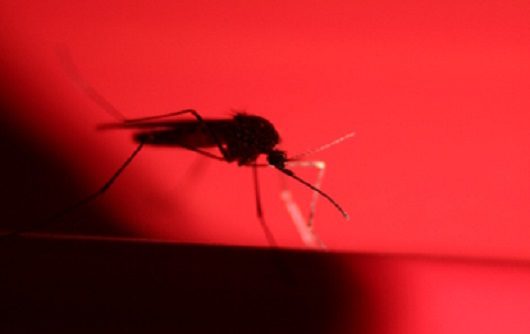
Mosquitos as bioweapon delivery platforms: The imminent danger posed by China’s fused military-civilian research program
Guest post by Lawrence Sellin
China has a history of recklessness in its use of genetic engineering and the handling of dangerous microorganisms.
In a Planet of the Apes, life imitating art scenario, in 2019, Chinese scientists inserted human brain development genes into monkeys.
Leaks out of Chinese laboratories occurred in two separate incidents in April 2004, involving researchers infected with the deadly coronavirus SARS-CoV-1, responsible for the 2002-2004 first “COVID” pandemic, which also began in China.
Then, of course, China created the COVID-19 virus, which leaked from a laboratory, or, possibly, was deliberately released, causing a global pandemic and millions of deaths.
But those examples represent only the tip of the iceberg.
Everyone needs to understand that, in China, there is no difference between military and civilian research, the fusion of which was mandated in 2016 by the Chinese Communist Party as part of its Thirteenth Five-Year Plan.
When everything has dual-use potential, no research can be automatically considered benign.
In a recent Gateway Pundit article, Cullen Linebarger wrote about a South China Morning Post report that Chinese scientists conducted experiments using mosquitos to deliver vaccines.
A Chinese scientific team, led by Professor Aihua Zheng, created a new hybrid virus by combining the recently-discovered Flavivirus called Chaoyang virus, which allegedly only replicates in insects, with the human-infecting Zika virus, also a member of the Flavivirus family.
Flaviviruses are RNA viruses like COVID-19, but are far more dangerous, attacking the central nervous system. They include yellow fever, Japanese encephalitis, West Nile, dengue fever and Zika virus, which is known for infecting pregnant women and causing severe brain damage to their babies.
In Professor Aihua Zheng’ s experiments, mosquitos infected with the genetically-engineered Chaoyang-Zika virus would bite animals, producing an immune response, which would then protect the animals from Zika virus infection via anti-Zika antibodies.
If you think that sounds benevolent, think again.
The South China Morning Post article did not mention that Professor Aihua Zheng is a close collaborator with China’s People’s Liberation Army (PLA), in particular, Cheng-feng Qin of the Academy of Military Medical Sciences in Beijing.

The South China Morning Post may have also deliberately misspelled Professor Aihua Zheng’s name to throw investigators off the scent.
It is important to note that Professor Aihua Zheng was trained at the Albert Einstein School of Medicine in New York, where he studied the envelope or E-protein of another Flavivirus, the lethal dengue fever virus.
While studying the dengue fever E-protein in the United States, Professor Aihua Zheng was the beneficiary of U.S. taxpayer research support from Anthony Fauci’s National Institute of Allergy and Infectious Diseases.
The PLA has placed a special emphasis on Flaviviruses like Zika and its envelope or E-protein, which “contains many single amino acids that affect viral neurovirulence and neuro-invasiveness” (Med J Chin PLA, Vol. 35, No. 9, September 1, 2010).
In that regard, General Rui-fu Yang together with three of his senior PLA colleagues Zhi-Kai Xu, Zhong-Tian Qi and Fu-Quan Hu wrote that the new era required a military microbiology strategy that “should strive to cultivate and bring up a team of scientific and technological talents with strong innovation ability” regarding “pathogenic substances, pathogenic mechanisms and immune mechanisms of important pathogenic microorganisms” “including the construction and management of high-level biosafety laboratories” for research related to “biological warfare” (Med J Chin PLA, Vol. 35, No. 9, September 1, 2010).

Although Flaviviruses are usually only transmitted by mosquito or other insect bites and are diseases not common in the United States, the PLA may be in the process of changing that situation.
The PLA has long had an extensive Flavivirus military-civilian research program, which uses genetic engineering to create new combination viruses such as a combined Japanese encephalitis-Zika virus and conducts “gain of function” experiments using genetic engineering, making native Zika viruses more infectious.
PLA scientists have already begun studies on possible human-to human transmission of Zika virus via intranasal inoculation of non-human primates and the transmission between animals in close proximity.
Alarmingly, the PLA has also shown a keen interest in and has conducted numerous studies on the American strain of Zika virus.
Given China’s fused military-civilian research program, mosquitos capable of carrying vaccines could, just as easily, carry bioweapons.
Lawrence Sellin, Ph.D. is retired U.S. Army Reserve colonel and a veteran of Afghanistan and Iraq. He had a civilian career in international business and medical research. Dr. Sellin is the author of Restoring the Republic: Arguments for a Second American Revolution. His email address is lawrence.sellin@gmail.com.
The post SELLIN: China’s Reseach with Mosquitos May Lead to Using Mosquitos in a Bioweapon Delivery Platform appeared first on The Gateway Pundit.